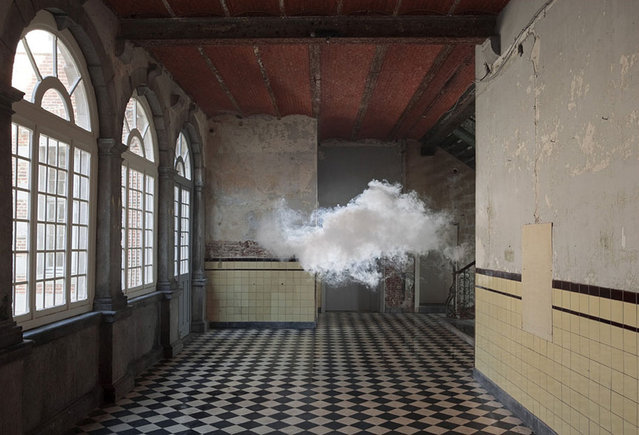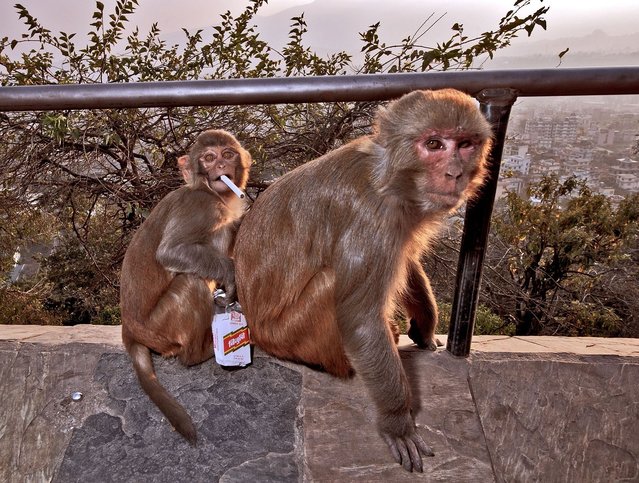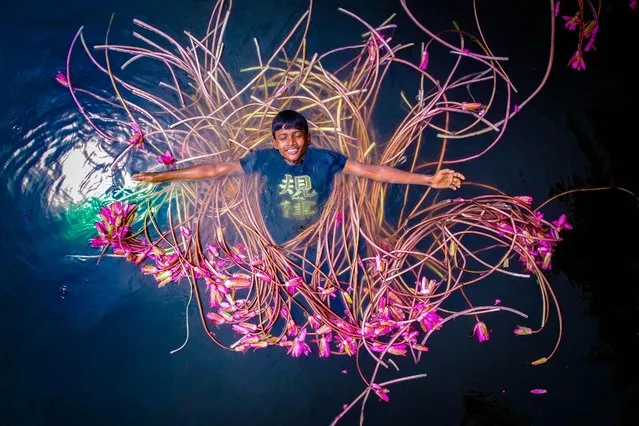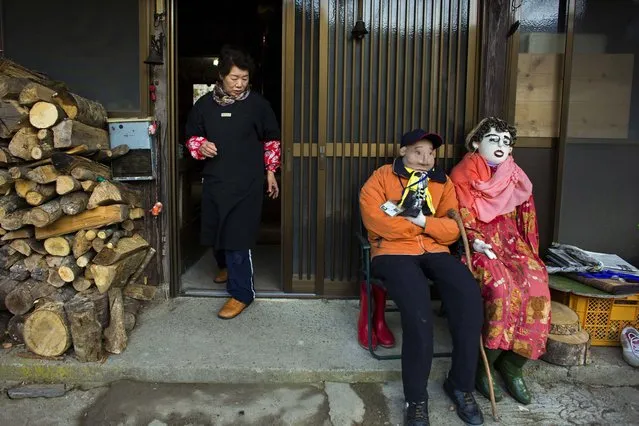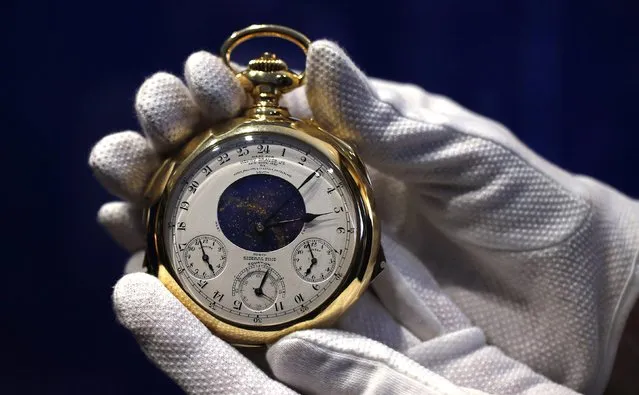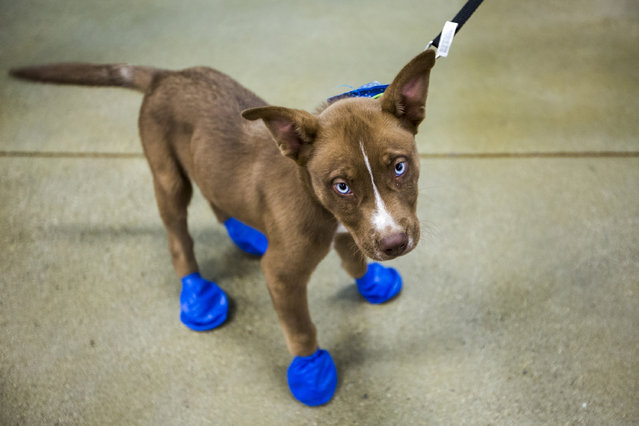
Arrow sports his new elastic booties at a PetSmart in Tempe, Ariz. on Tuesday, June 20, 2017. Phoenix radio station KSLX handed out the protective coverings to protect dogs' paws from the hot pavement, as temperatures in Phoenix are forecasted to hit 120 degrees (48°C). (Photo by Angie Wang/AP Photo)
21 Jun 2017 08:18:00,post received
0 comments

